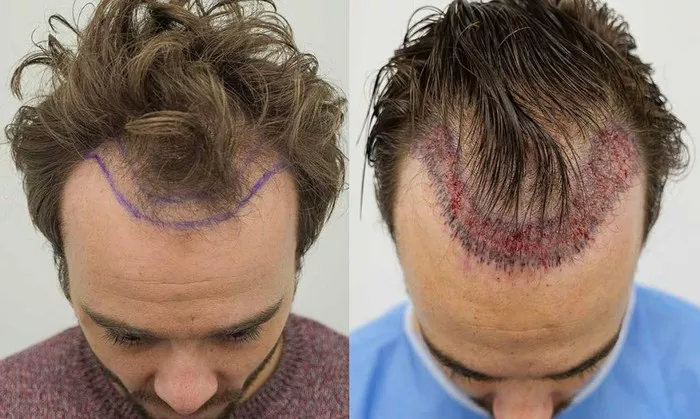Laser technology has revolutionized various fields, including medicine. One of the applications gaining attention is laser hair transplant. But does this method truly deliver on its promises? In this article, we’ll delve into the concept of laser hair transplants, how they work, and their effectiveness in addressing hair loss concerns.
Understanding Laser Hair Transplant
Laser hair transplant, also known as low-level laser therapy (LLLT), is a non-invasive procedure aimed at stimulating hair follicles and promoting hair growth. During the process, low-level laser devices emit red light that penetrates the scalp’s tissues. This light energy is believed to enhance blood circulation and cellular activity in the hair follicles, potentially leading to thicker and healthier hair. While studies suggest positive outcomes for some individuals, results can vary, and its effectiveness remains a subject of ongoing research and discussion. Consulting with medical professionals and considering combined approaches can help determine if laser hair transplant is suitable for addressing specific hair loss concerns.
How Does It Work?
During a laser hair transplant procedure, low-level laser devices are applied to the scalp. These lasers emit red light that is believed to penetrate the scalp’s tissues. The light energy is absorbed by cells, promoting blood circulation and cellular activity. This stimulation is thought to enhance the growth phase of hair follicles and counteract the effects of hair loss.
Effectiveness of Laser Hair Transplantation
The effectiveness of laser hair transplantation, also known as low-level laser therapy (LLLT), is a topic of ongoing debate. Some studies suggest that LLLT might stimulate hair follicles, improve blood circulation, and promote hair growth in individuals with mild to moderate hair loss. However, its outcomes can vary widely, and not all individuals experience significant results. Factors such as the type of laser device, treatment duration, and individual response play a role. LLLT might be more effective as a complementary treatment alongside other proven methods for comprehensive results. Consulting with professionals and managing expectations is crucial when considering laser hair transplantation.
Things to keep in mind for laser hair transplant
When considering a laser hair transplant, there are several important factors to keep in mind to make informed decisions and maximize potential benefits. Here are key considerations:
1. Professional Consultation:
Consult with a qualified dermatologist or hair restoration specialist. They can assess your hair loss condition, recommend suitable treatments, and determine if laser therapy is appropriate for you.
2. Realistic Expectations:
Understand that results from laser hair transplant can vary. While some individuals might experience improvement, others may see minimal change. Managing expectations is crucial.
3. Type of Hair Loss:
Laser therapy might be more effective for mild to moderate hair loss. Severe cases might require more comprehensive approaches like surgical hair transplantation.
4. Combination Approach:
Consider using laser therapy as a supplementary treatment alongside proven methods such as medications or surgical procedures for enhanced results.
5. Treatment Plan:
Discuss the treatment plan with your specialist, including the recommended number of sessions and the duration of each session.
6. Cost Consideration:
Laser therapy might require multiple sessions, and costs can accumulate. Discuss the financial aspects and compare them with potential benefits.
7. Post-Treatment Care:
Follow post-treatment care instructions provided by your specialist. This might include guidelines on scalp hygiene, sun protection, and any necessary follow-up appointments.
Incorporating these considerations into your decision-making process will help you make well-informed choices regarding laser hair transplant and increase the likelihood of achieving satisfactory results.
Conclusion
While the concept of laser hair transplant is intriguing, its effectiveness is not yet universally established. It’s essential to approach this option with a realistic outlook and understand that individual results can vary. Consulting with medical professionals, exploring various treatments, and maintaining realistic expectations are key to making informed decisions about addressing hair loss concerns. As technology and research progress, laser hair transplant might evolve into a more promising solution, but for now, it’s advisable to consider a holistic approach to hair restoration.


